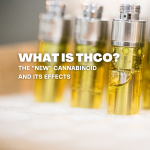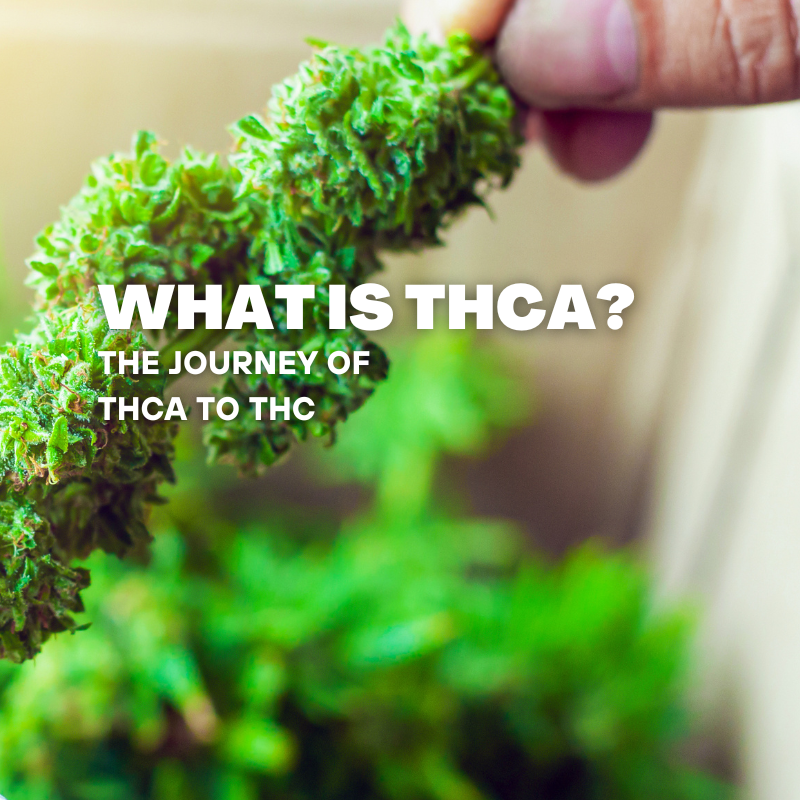In the intricate world of cannabis, the journey from plant to activation involves a fascinating transformation of cannabinoids. Among these compounds, THCA (tetrahydrocannabinolic acid) holds a unique position as the precursor to the well-known psychoactive compound THC (tetrahydrocannabinol). In this blog, we’ll embark on a journey through the process of how THCA transforms into THC, unlocking the psychoactive potential that has made cannabis a subject of both recreational and medicinal interest.
The Cannabis Plant’s Gift: THCA in its Raw Form:
The journey begins within the cannabis plant, where cannabinoids are present in their raw, acidic forms. THCA, found in abundance, is non-psychoactive in this initial state.
Decarboxylation: The Key to Activation:
Decarboxylation is the pivotal process that activates THCA, turning it into THC. This transformation involves the removal of a carboxyl group through heat or time, and it is a crucial step in unlocking the psychoactive effects of THC.
Methods of Decarboxylation:
- Heating: Smoking, vaporization, or cooking with cannabis involves the application of heat, initiating the decarboxylation process.
- Aging: Over time, cannabis naturally decarboxylates through aging, although this is a slower method.
Smoking and Vaporization: Instant Activation:
- When cannabis is smoked or vaporized, the heat applied to the plant material rapidly activates THCA, providing users with the immediate psychoactive effects associated with THC.
Cooking with Cannabis: Culinary Alchemy:
- Cooking with cannabis involves infusing heat into ingredients containing THCA. This process not only decarboxylates THCA but also allows for the creation of a variety of edibles with varying THC concentrations.
Cannabinoid Activation in the Endocannabinoid System:
- Once THC is activated, it interacts with the endocannabinoid system (ECS), a complex network of receptors in the human body. THC binds primarily to CB1 receptors, influencing various physiological processes and producing the characteristic psychoactive effects.
Potential Therapeutic Benefits of THC:
- THC’s activation within the body has been associated with potential therapeutic benefits, including pain relief, mood elevation, and appetite stimulation. Research is ongoing to explore its applications in various medical conditions.
The Role of Cannabinoid Ratios:
- The cannabinoid profile of a cannabis strain, including the ratio of THCA to THC, influences the overall effects experienced by users. Different strains offer unique combinations of cannabinoids, contributing to the diverse spectrum of cannabis experiences.
The Dynamic Transformation of THCA to THC:
The journey from plant to activation, from THCA to THC, unveils the dynamic nature of cannabinoids within the cannabis plant. Understanding this transformation is key for both recreational and medicinal users, as it sheds light on the factors influencing the onset and intensity of psychoactive effects. As the field of cannabis research continues to evolve, so does our appreciation for the intricate processes that make cannabis a captivating and multifaceted botanical marvel.





